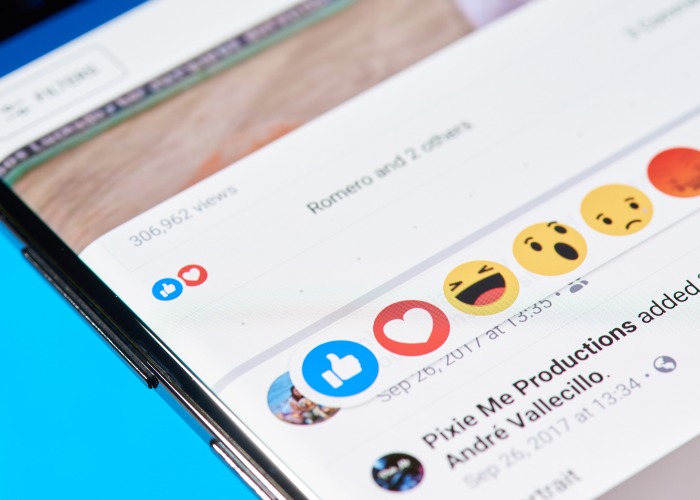Are Facebook "Like and Share" competitions really fair?

loveMONEY online safety expert warns us about the legitimacy of some competitions companies run on Facebook.
For many of us, Facebook is our go-to source for events, news, and general updates on friends and family.
With over two billion users worldwide, it's no wonder so many companies see it as a great platform to interact with customers on their own terms, advertising their products and services, and coming up with clever, viral-ready, campaigns to attract more business.
One often employed technique that's popular with many businesses and consumers alike are "like and share" competitions.
These competitions often offer a prize for simply liking, sharing, and commenting on a Facebook post.

For consumers, the chance of winning a prize simply by clicking a few buttons is a tempting one and, for the company hosting the competition, they stand to gain a wider, more relevant, audience by offering a product or service of theirs to one lucky winner.
At first glance, it seems to be a great deal for all involved, however upon further investigation, it's not quite as fair it seems.
Not everyone has a fair chance of winning
Businesses that run a Facebook page can only see a small number of people that like, share, or comment on one of their posts – including, and especially, competition posts.
This is due to many factors including users' individual privacy settings and Facebook's internal algorithms. As a result, many entrants to "like and share" competitions are excluded without either party being aware.
Facebook makes it clear to page owners that not all interactions with a piece of content will be shown to them in an attempt to make the page owners pay for advertising or create an embedded app on the platform.

Facebook also explicitly states that "like and share to enter" style competitions are against their rules due to these caveats and, if caught, the page may be subject to being penalised or suspended from Facebook altogether.
It's one of the reasons why most well-known brands don't run these types of competitions.
Do page owners know about the caveats?
Some page owners I spoke to have acknowledged privately that they know not all entrants have a fair and equal chance of winning a prize due to Facebook's caveats.
Some even went as far as to say they hand-picked winners that they personally felt to be more deserving by combing through the profiles of those they could see interacting with their post, rather than selecting a winner at random.

For many page owners, they felt that the risk of being penalised (or even banned entirely) for running a "like and share" competition was worth the mass of publicity they received off the back of such a competition at a fraction of the cost of an advertising campaign.
Many also noted that many competing businesses, in their local area, were running similar competitions and that not doing so themselves could result in a loss of potential customers.
Some are engineered as complete scams
Due to the ease of entry and potentially high chance of going viral, "like and share" competitions are often used by fake pages set up by scammers to lure victims into liking a fake company page (you can read about this and more Facebook scams here).
Many people forget about pages they've liked more than a few weeks ago – especially if the page doesn't post anything after the initial competition.
16 common email and social media scams and how to spot them
By liking the fake company page, fraudsters can simply change the page name and profile picture to appear to be a well-known high street brand and post malicious links to hundreds, if not thousands, of people's Facebook feeds in the hope of defrauding them in one way or another.

Sometimes fraudsters are simply hoping to garner a large number of likes for a shell page so they can be sold on and rebranded later with a large number of followers from the get-go.
Such a trick is popular with pages representing adult content where conventional advertising could be tricky.
Check your credit report for signs of suspicious activity
Informed consent is key
While these "like and share" competitions are against Facebook's rules, and they come with their own caveats for both the competition runners and entrants, it should be noted that smaller businesses tend to find marketing on social networks difficult.
Advertising via Facebook's ad platform can be pricey and result in somewhat negative comments from the public as many of us dislike sponsored or promoted posts in our news feeds.

As these type of competitions have historically worked well for smaller companies in gaining more attention on social media it seems that they won't be stopping any time soon unless Facebook takes more drastic action.
Ultimately, it boils down to two questions for those who wish to enter these competitions: are you are comfortable with a page owner not following the terms and conditions of a platform (which may indicate they're willing to flaunt other rules as they see fit)?
And: are you comfortable knowing that you might not have an equal chance to win a competition as someone else?
Now read: Online commenting: how you may be revealing too much about yourself
If you think you've been scammed, keep an eye out for anything unusual on your credit report. Get free access for 30 days with loveMONEY.
Comments
Be the first to comment
Do you want to comment on this article? You need to be signed in for this feature